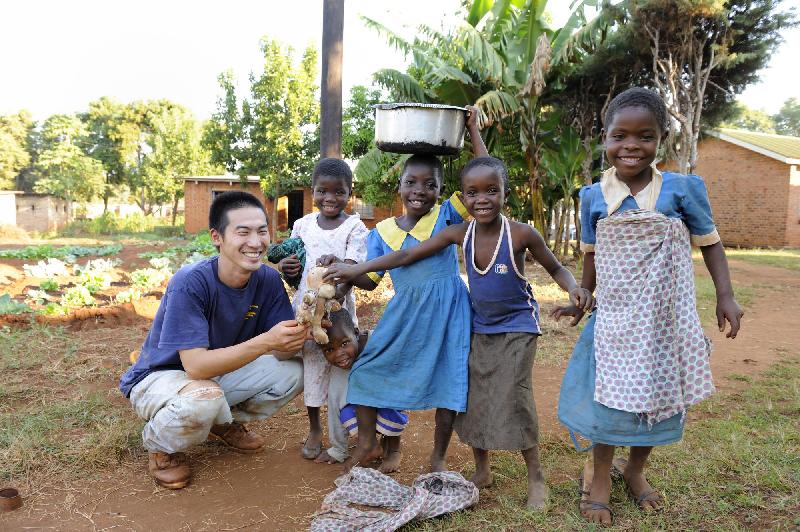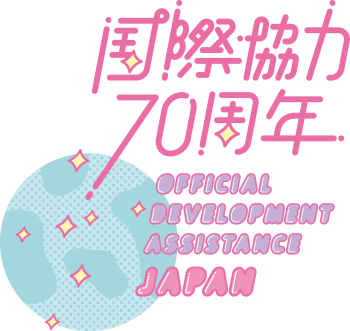Monthly Highlights of Research Activities: Commemorating the 70th Anniversary of Japan’s ODA
2024.10.18

(Photo: JICA/Sato Koji)
On Oct. 6, 1954, Japan joined the Colombo Plan, a framework for cooperation to support the economic and social development of countries in the Asia-Pacific region. This marked the memorable start of Japan's Official Development Assistance (ODA) to developing countries, and making the year 2024 the 70th anniversary of this involvement. In 1987, the day was designated as "International Cooperation Day."
Having received significant support from the international community in the reconstruction of the nation following World War II, Japan has been actively engaged in addressing global issues across numerous regions worldwide.
JICA Ogata Sadako Research Institute for Peace and Development conducts a wide range of research projects analyzing the history, characteristics, and evaluation of Japan’s development cooperation, offering a perspective on its future. Moreover, the institute has compiled the fruits of Japan’s long-standing cooperation in a series of books. Here are some of its activities and research findings.

In the face of mounting global challenges, development cooperation will continue to be the most important tool for Japan to contribute to the international community. The objective of this research project is to publish a seven-volumed book series entitled, “Nihon no Kaihatsukyoryokushi wo Toinaosu (Reconsidering the History of Japan's Development Cooperation)” (available in Japanese only) to provide a historical overview of Japan’s development cooperation.
In this upcoming forum, Vice-President Kato Hiroshi of the International University of Japan will give a keynote speech. Following this, the researchers who authored the book series “Nihon no Kaihatsukyoryokushi wo Toinaosu ” (Reconsidering the History of Japan’s Development Cooperation) and a practitioner will give an overview of the history of development cooperation, looking back from their respective viewpoints. Please join us!
The Project History is a series of books, which review the trajectories and results of JICA projects. This series puts the main target readership on the members of the younger generations who are interested in international cooperation and gives them information about actual operations in development cooperation.
We have published six installments in English so far, including “Japanese Immigrants Who Supported the Development of Paraguay—The Achievements That Made Paraguay the World’s Fourth Largest Soybean Exporter and an Implementer of New Initiatives for Industrial Diversification
,” and “Peace and Development in Mindanao, Republic of the Philippines—The Long Road to Peace through Trust
.”
English language comic books can be accessed at the following links.
・Roofless Homeless But Not Hopeless: Recovery from Typhoon Yolanda in the Philippines
・Peace and Unity Through Sports: South Sudan’s First “National Unity Day” and its Inaugural Olympic Participation
・Linking Humanitarian and Development Assistance in Refugee Response: A New Approach to Refugee Crises in Africa
・Pakistan Non-Formal Education: Learning for Future
・Madam, This is Our Metro!: India and Japan Committed to a Better World & Future
・Regional Revitalization in Japan Brought About by Bangladeshi IT Professionals: A New Form of International Cooperation Connected from Volunteers to Industry, government, and Academia
As Japan looks toward the future of its development cooperation in education, it is important to document and reflect upon the histories that have shaped the present. This book is the first to comprehensively document the history of Japanese development cooperation in education from the 1950s to mid-2010s, examining its evolution and characteristics in depth.
The volume published in 2015 is a comprehensive review of the history of Japanese ODA. Covering almost the entire post-WWII period and looking at both bilateral and multilateral ODA, the book features 21 essays contributed by the members of a highly diverse project team. This team includes first-class researchers as well as experienced development assistance practitioners from Japan, the U.S., Europe, Asia and Africa.

事業事前評価表(地球規模課題対応国際科学技術協力(SATREPS)).国際協力機構 地球環境部 . 防災第一チーム. 1.案件名.国 名: フィリピン共和国.

事業事前評価表(地球規模課題対応国際科学技術協力(SATREPS)).国際協力機構 地球環境部 . 防災第一チーム. 1.案件名.国 名: フィリピン共和国.

事業事前評価表(地球規模課題対応国際科学技術協力(SATREPS)).国際協力機構 地球環境部 . 防災第一チーム. 1.案件名.国 名: フィリピン共和国.

事業事前評価表(地球規模課題対応国際科学技術協力(SATREPS)).国際協力機構 地球環境部 . 防災第一チーム. 1.案件名.国 名: フィリピン共和国.

事業事前評価表(地球規模課題対応国際科学技術協力(SATREPS)).国際協力機構 地球環境部 . 防災第一チーム. 1.案件名.国 名: フィリピン共和国.